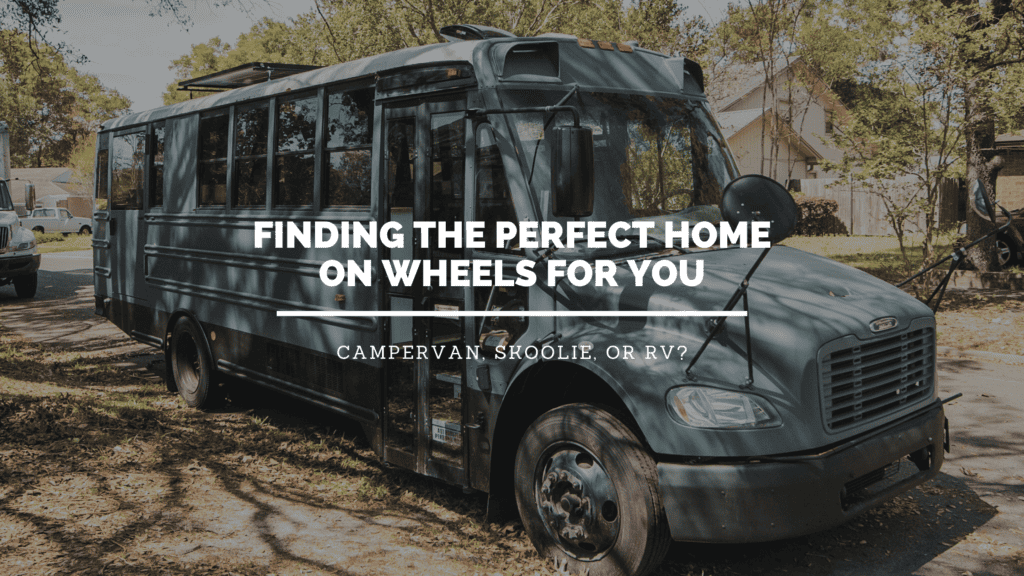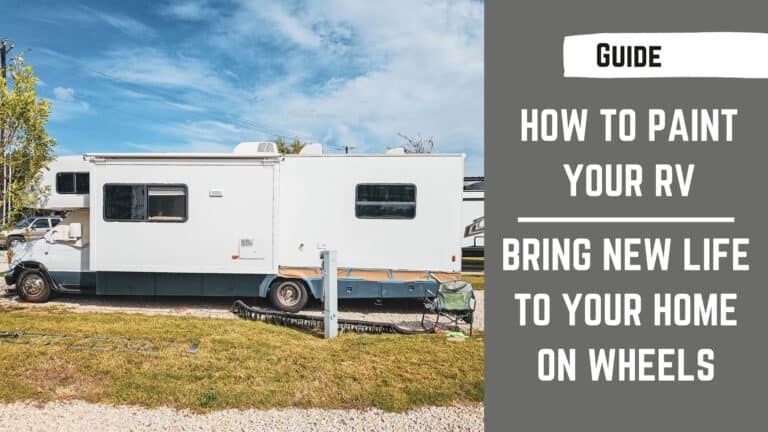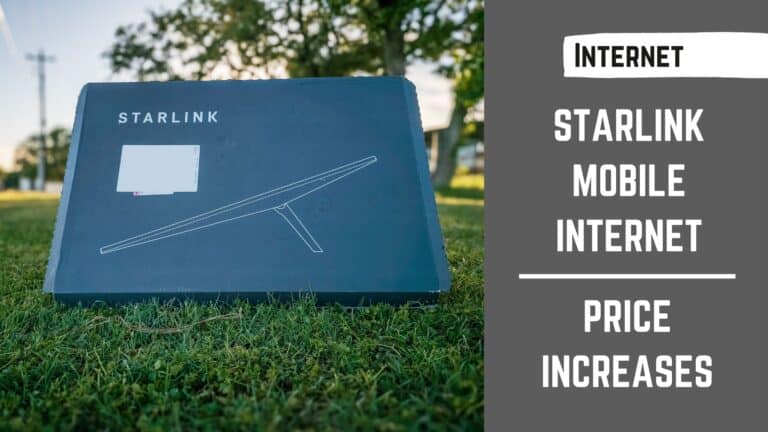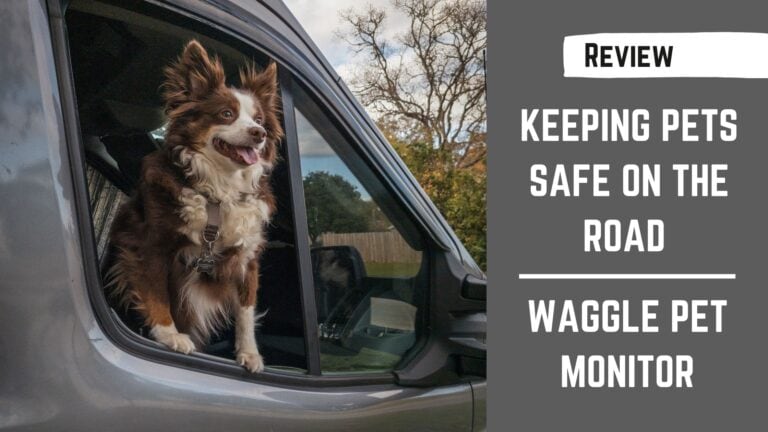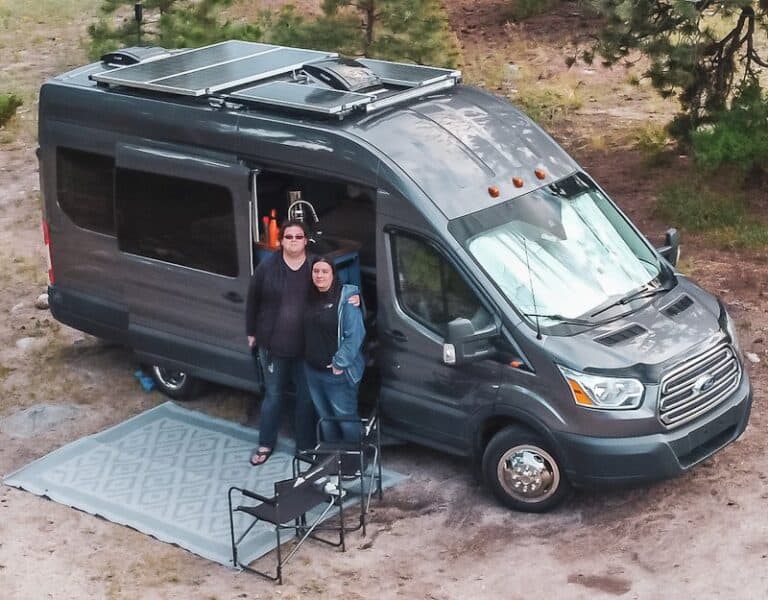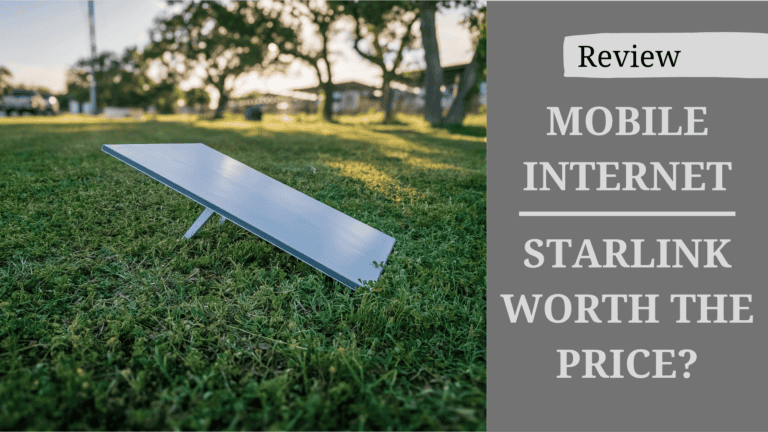The call of the open road, exploring the National Parks, and creating memories that’ll last a lifetime. It’s no wonder traveling full-time in a campervan or bus conversion is so appealing. Full-time travel does have its downsides and difficulties, yet in our opinion, we can’t imagine life not on the move.
The biggest question is, what kind of rig would best suit you? Would a campervan be best? Maybe a school bus conversion (also known as a skoolie)? Or even a ready-to-go traditional RV?
There are many ways to travel full-time, each with advantages and disadvantages. So it’s important to consider each option and weigh it against what you want out of traveling.
Having traveled in a skoolie, campervan, and even a sailboat. We’ve gained tremendous first-hand experience with each type of rig. So, hopefully, this guide will help narrow down the perfect home on wheels for you!
Why Do You Want To Travel?
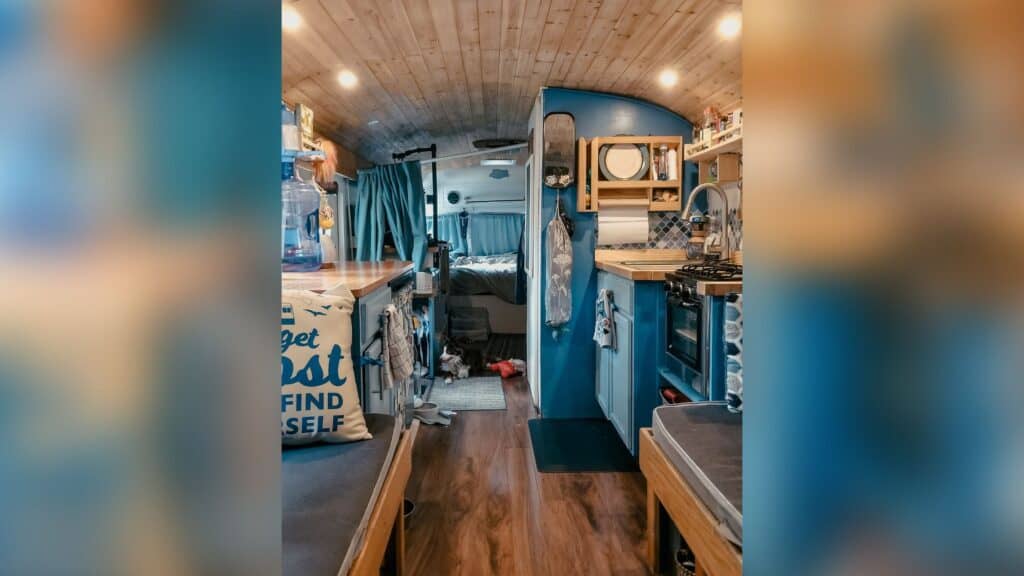
It’s easy to get caught up in this rig vs. that rig, skoolie vs. campervan, and all the other details of picking out your dream travel setup. It is exciting to look at RVs and all the space they offer while considering that sweet 4×4 sprinter campervan and all the backroad places you can explore. Getting wrapped up in all the possibilities is easy and can lead to feeling overwhelmed.
That’s why the first question you should ask yourself when looking at rigs to travel with is, “Why do you want to travel?”
Do you want to travel full-time, being constantly on the move and exploring new areas? Do you have a job you travel with but stay put at places for a month or more? Are you more interested in traveling slowly and getting to know each place you visit, like it’s your hometown?
These are the first questions you must ask before looking at campervans, RVs, skoolies, or whatever other type of traveling vehicle may cross your mind.
Answering these questions will help narrow down the type of rig that will best fit you. If you stay put for extended periods, perhaps a larger RV that feels more like a house is a good fit. A campervan could be perfect if you constantly move without ever staying somewhere for long. Are you planning on taking it slow and exploring? A skoolie is excellent for that. Ultimately, it comes down to your needs, travel style, and what you want.
Where Do You Want To Travel?
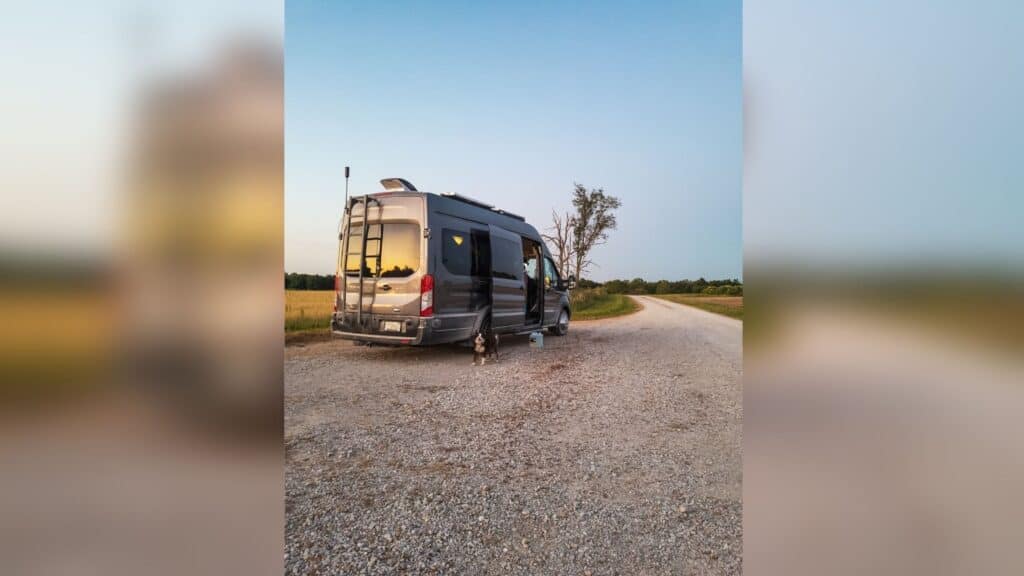
Just as important as why is where? Traveling with the weather is very different than wintering up north. Not all skoolies and campervans have the insulation required to be comfortable when it is hot out. In the winter, a lack of proper insulation can turn a fun campervan or skoolie into a very uncomfortable and chilly experience. Even most RVs are known as “three-season RVs,” meaning they are not built with freezing temperatures in mind.
That doesn’t mean you can’t find or build a campervan or skoolie to withstand true four-season travel. There is even an increasing amount of RVs constructed to be lived in and traveled with through the heat of summer and freezing temps and snow.
If you plan on building out your rig, knowing the types of places you want to spend summer and winter will help you plan and determine how much insulation will be needed. When buying an RV or skoolie, having an idea of the level of insulation you’ll need will help ensure you are happy with your purchases no matter the time of year.
Vanlife | Traveling In A Campervan
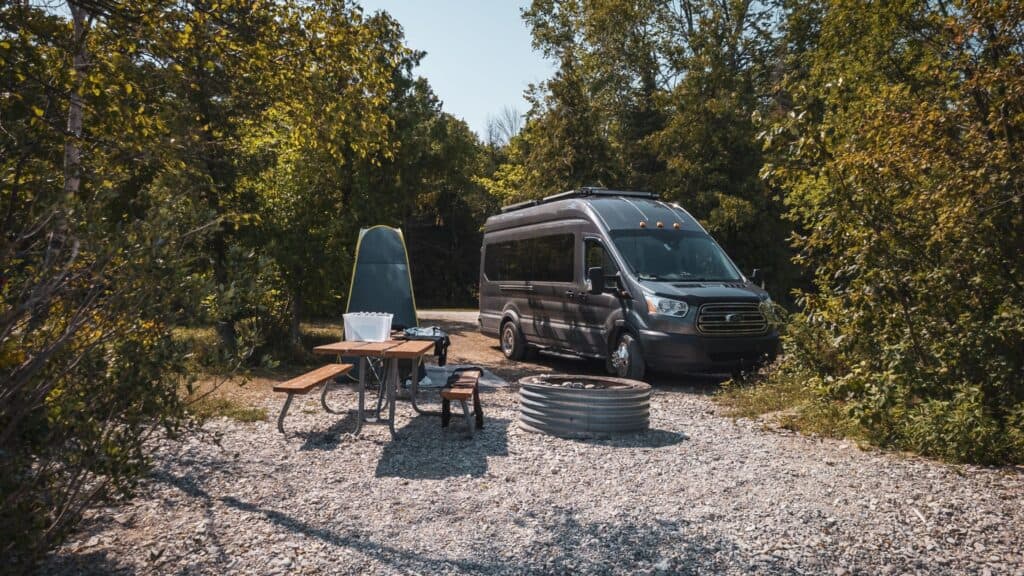
#vanlife, we all know it and have seen the videos and photos of amazing campervans off adventuring down dirt roads and through the National Parks. Campervans offer the ultimate flexibility for traveling. Due to their smaller sizes, most campervans can fit into places that larger bus conversions and RVs simply can not. For instance, the extended-length Ford Transit campervan we built could fit into a single parking space. Making errend days in the city that much easier. The extended-length Transit can easily get down backroads and two-track dirt roads.
A campervan’s smaller size is also its biggest challenge. Smaller living space means less storage space. Less storage for food storage leads to more frequent trips to the store, and less storage space for hobbies and gear means having to make some hard choices on what you bring with you on the road. Everything in a campervan needs to have multiple uses; every spot where storage can be added needs to be used.
Living and traveling in a campervan tends to lead to a more minimalist lifestyle, as there just isn’t the space for stuff like there is in bus conversions and RVs. This way of traveling works great for some people, while others can have a hard time with the amount of downsizing needed.
If you are like the tradeoff of being able to get to some of the best campsites and spots at the cost of not being able to take everything with you, then a campervan could be a great rig choice for you.
Campervan Pros
- Can fit in a parking space
- AWD and 4WD versions are available
- Easier to Stealth Camp
- Easy to drive
- Small campsites are no problem
Campervan Cons
- Less living space
- Often lacks storage space
- Often lacks a full bathroom/indoor shower
Buslife | Traveling In A Bus Conversion (Skoolie)
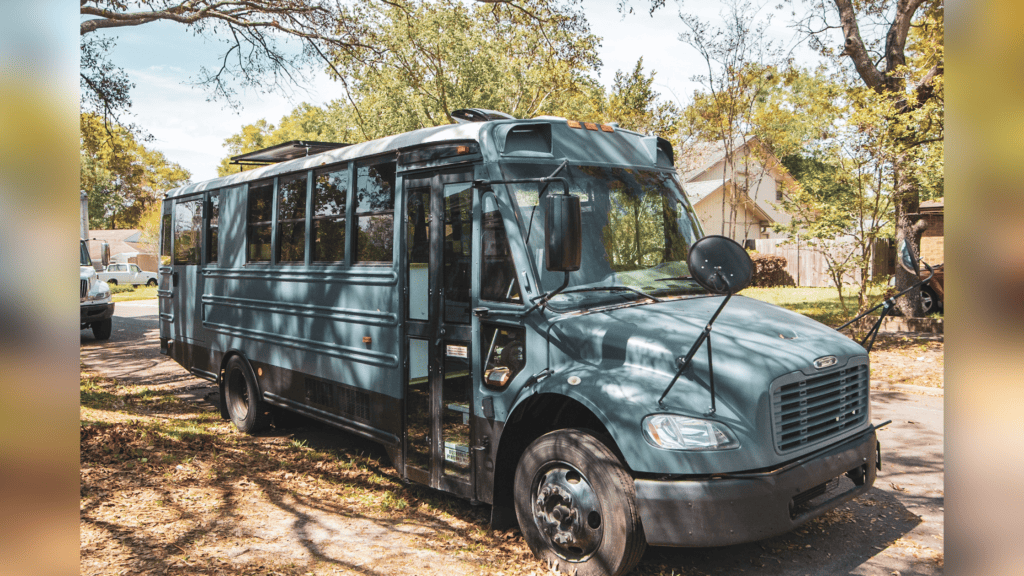
The tough and rugged school bus conversion. They have become a staple of the nomadic community and inspire many people to hit the road in a self-built Skoolie. There is no denying the appeal that bus conversions hold. They are built like tanks to keep kids safe, have full-sized truck engines and transmissions, and a bus conversion has a level of customizability that other rigs can not match.
The advantage that school bus conversions have over campervans and RVs is just how much you can customize the build. Buses have way more space inside than any campervan, allowing you to incorporate everything you could think of into your home on wheels. Massive bathrooms with full-sized showers, walk-in closets, and bunk beds for kids. It’s all possible with a bus conversion.
Maintenance and the cost of repairs are perhaps the most overlooked concerns with any bus conversion. School districts sell their buses when either the bus becomes more expensive to operate than it is to replace or when the school district gets a grant to upgrade its bus fleet. If you can find a bus being sold due to a fleet upgrade, it tends to be in much better condition and have fewer mechanical issues that need to be addressed. The problem is that finding buses that meet that criteria is not always easy.
We always recommend that if you are not knowledgeable about engines, you take someone who knows their way around bigger diesel engines when looking at a bus. That way, you can be confident that you are getting a good bus.
Bus Conversion Pros
- High ground clearance means better offroad performance.
- Bus conversions have a lot more character.
- Built to be tough and safe in accidents.
- Buses come in multiple lengths, making having enough space easier.
Bus Conversion Cons
- Higher cost for repairs
- Often, bus conversions already have 150,000+ miles on the drivetrain.
- Not as comfortable to drive.
- Insurance can be more challenging to get
RVing | Traveling In An RV
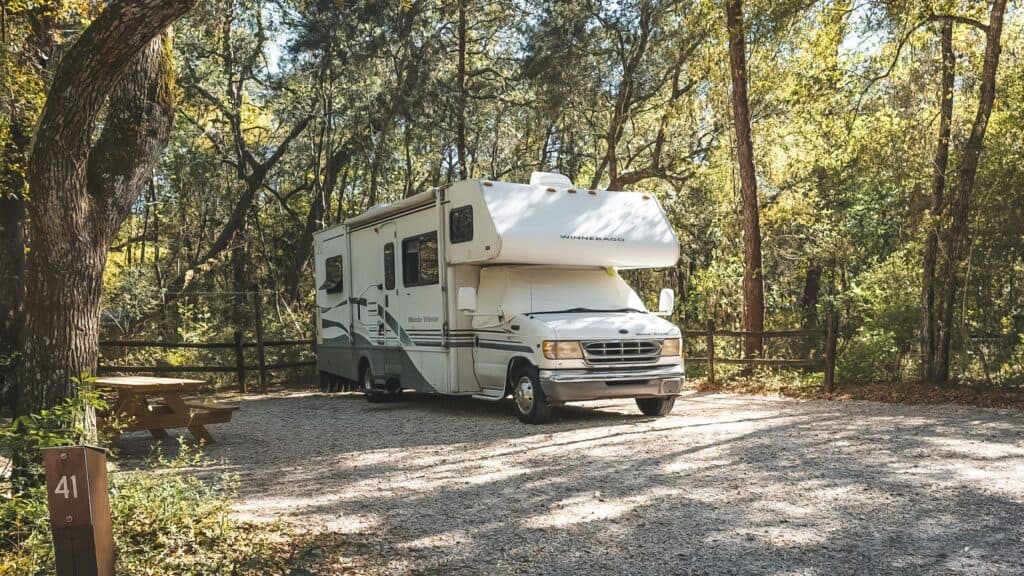
Most people perceive RVs as way too expensive, with newer rigs costing $100k and upwards and being too fancy to take down dirt roads to reach the best free camp spots. Simultaneously, many people regard RVs as run-down, cheaply made, and prone to disintegration, believing that they will rot and fall apart on the first rough forest road they encounter. This perception leads many to overlook RVs in favor of bus conversions and campervans.
With RVs, the truth is that manufacturers build them for traveling, giving them the feel of small mobile apartments. It’s even possible to get a well-built, low-mileage RV for less than the cost of most unconverted school buses. You can often find a 31-foot Class C RV built between 2000 and 2015 for less than $15k. While this upfront cost might seem to be higher than some buses and campervans, RVs come ready for travel and do not require a full build-out on top of the cost of the vehicle.
RVs already have kitchens, stoves, bathrooms, showers, and everything else needed to live in. The only project that most RVs need is installing a solar setup to be entirely off-grid. While most campervan and bus builds will take at least four to six months to complete, with some builds taking even longer. Setting up an RV for off-grid camping can take a few days.
The other significant advantage of getting an RV is that getting insurance is extremely easy. Most bus conversions and campervans have difficulty getting proper insurance due to the DIY nature of most builds.
For all these reasons, RV renovations and remodels are becoming increasingly popular as more people hit the road.
RV Pros
- RVs can have a lot of space due to slide-outs.
- Easy to get insurance for.
- Often, RVs have a massive amount of storage.
- Van-front RVs are easy to drive.
RV Cons
- RVs depreciate in value, unlike most buses and campervans.
- Not set up from the factory for camping off-grid.
- Not built as well as campervans or buses.
TL;DR
So, what is the best home on the wheel for your adventure? It really depends on how you plan to travel and where you plan to go. Campervans are smaller and can get to more places, but they have the tradeoff of way less storage. Bus Conversions or Skoolies have space and are tough enough for off-roading, but they typically have more maintenance costs and repairs. RVs are not built the same way as vans or buses, yet they are essentially small traveling apartments with the amenities of a house.
The best part is there is no wrong answer because it is always possible to change things up down the road. For us, we started with a bus conversion, and after a few years, we ended up building out a campervan. Almost three years later, we found ourselves back in a skoolie, all before finally finding the perfect RV for us. Now we travel full time in a 2001 30-foot Winnebago class C RV, and it is by far our favorite home on wheels we have traveled in.
